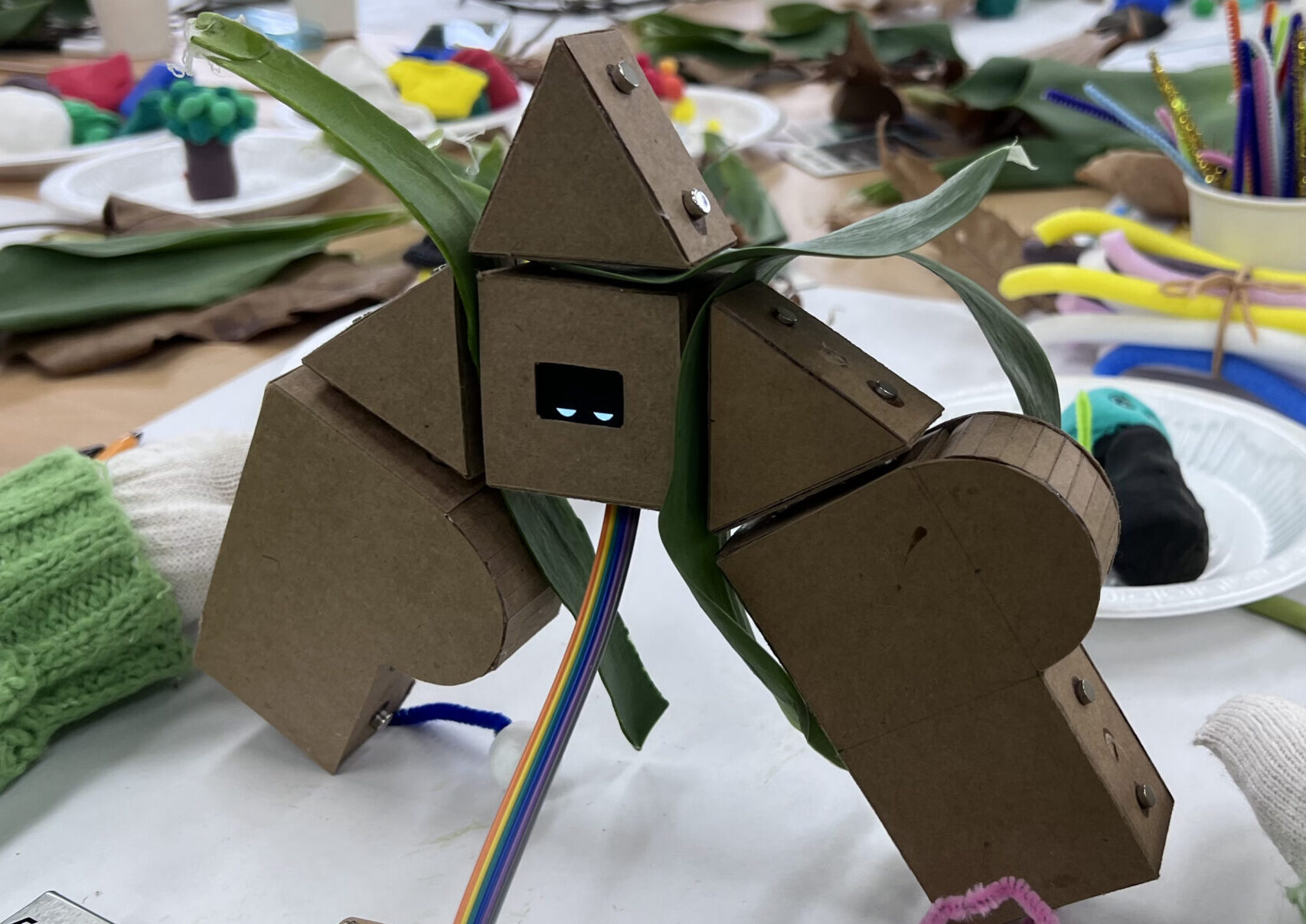| DURATION | 2023.07-2024.02 |
| ROLE | Ideation, Research Plan, Data Collection & Analysis, Manuscript Writing Process |
| COLLABORATORS | DESIS researchers, prof. Joon Sang Baek |
Background: While concerns exist regarding Generation Alpha’s disconnection from nature in urban environments, there is a lack of design research exploring technology-based nature play and its impact on fostering nature connection across multiple levels.
Research Purpose: This study aimed to develop a technology-based, relationally-oriented nature play grounded in the nature connection framework, which incorporates the theory of sense of nature connection and affordances.
Research Questions: What affordances emerge between children, artifacts, and nature during technology-based nature play? How does technology-based nature play influence children’s sense of nature connection? What design implications can be derived for technology-based, relationship-oriented nature play?
Research Approach: A qualitative study involving 20 11-year-old children in Seoul was conducted. This included A/B testing, participatory observation, and interviews focused on their nature play experiences.
Key Insights: Participants who engaged in technology-based nature play displayed an expanded and strengthened behavioral connection with nature. This deeper connection fostered mutually positive relationships. Additionally, their emotional connection to nature improved. Based on the findings, the study proposes flexible interactions that provide environmental impact feedback and open interfaces compatible with various aspects of nature as effective methods for relationship-oriented nature play.
Impact: This study contributes to the field of human-nature interaction design by offering a valuable nature connection framework that emphasizes relational thinking for researchers and designers in this area. Furthermore, it presents a novel technology-based, relationship-oriented nature play specifically designed to address Generation Alpha’s disconnection from nature.
